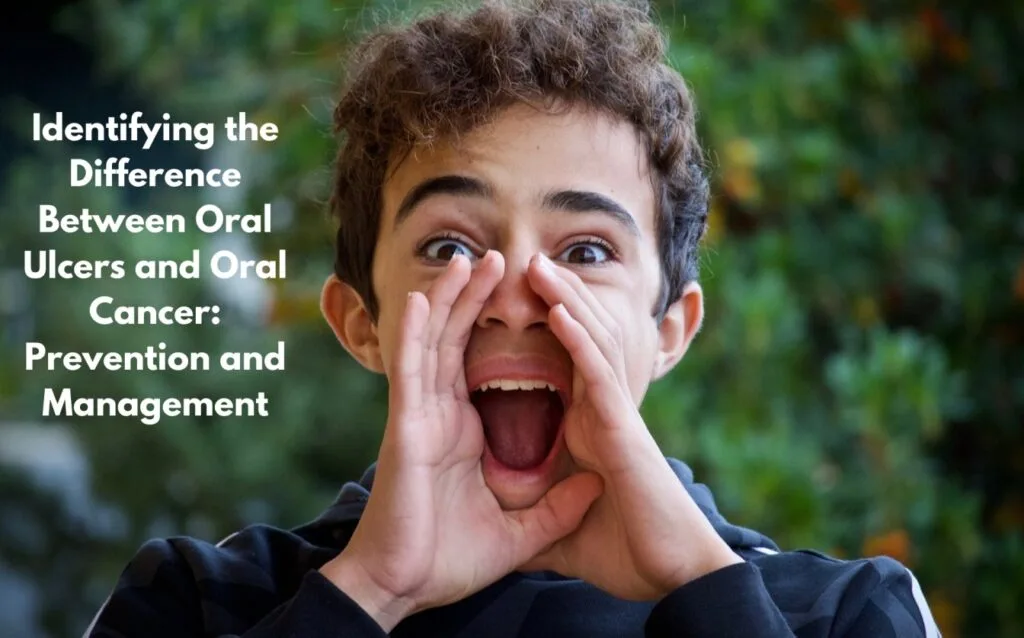
Even though they may appear similar in their early stages, mouth ulcers and oral cancer have quite different causes, symptoms, treatments, and outcomes. Making the distinction between the two is essential for prompt response and appropriate care. This page examines the differences, ulcer avoidance techniques, and cancer care recommendations.
How Do Mouth Ulcers Occur?
Canker sores, another name for mouth ulcers, are tiny, painful sores that develop in the mouth. Usually, they appear on the inside of the tongue, gums, lips, or cheeks. Without the need for medical attention, the majority of ulcers are benign and recover in a week or two.
Typical Reasons for Mouth Ulcers:
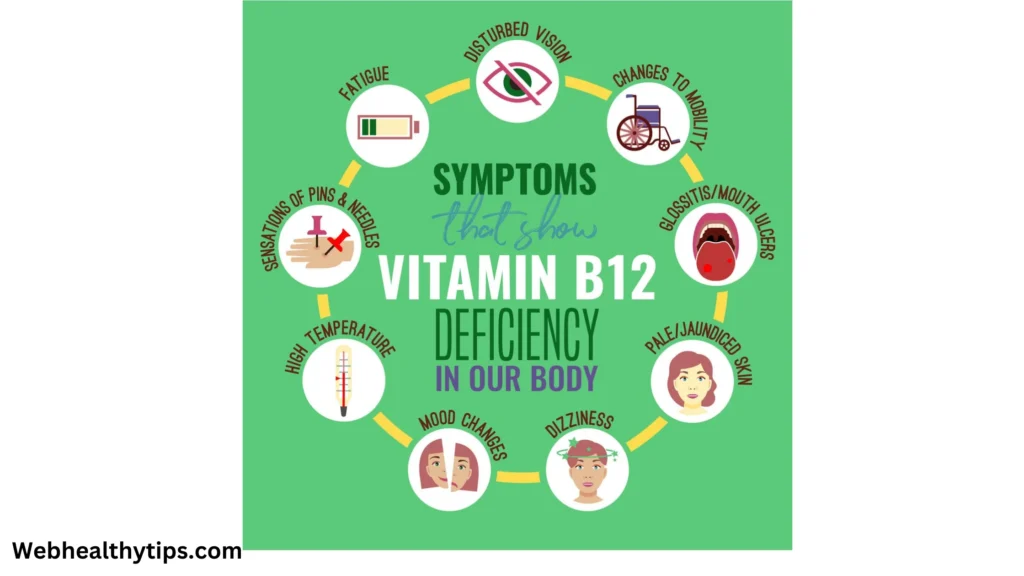
- Injury: An ulcer can result from hard brushing or biting the inside of the cheek.
Nutritional Deficiencies: Iron, zinc, and B12 deficiency are frequently linked to deficiencies. - Food Sensitivities: For certain people, acidic or spicy foods might cause ulcers.
- Stress and Hormonal Changes: Stress on the emotional front, or hormonal imbalances in general, can cause ulcers, particularly in women.
- illnesses: Mouth ulcers can be mistaken for viral illnesses, such as herpes simplex cold sores.
- Underlying Health Conditions: Recurrent ulcers may be brought on by illnesses such as Crohn’s disease, celiac disease, or a compromised immune system.
Signs of oral ulcers:
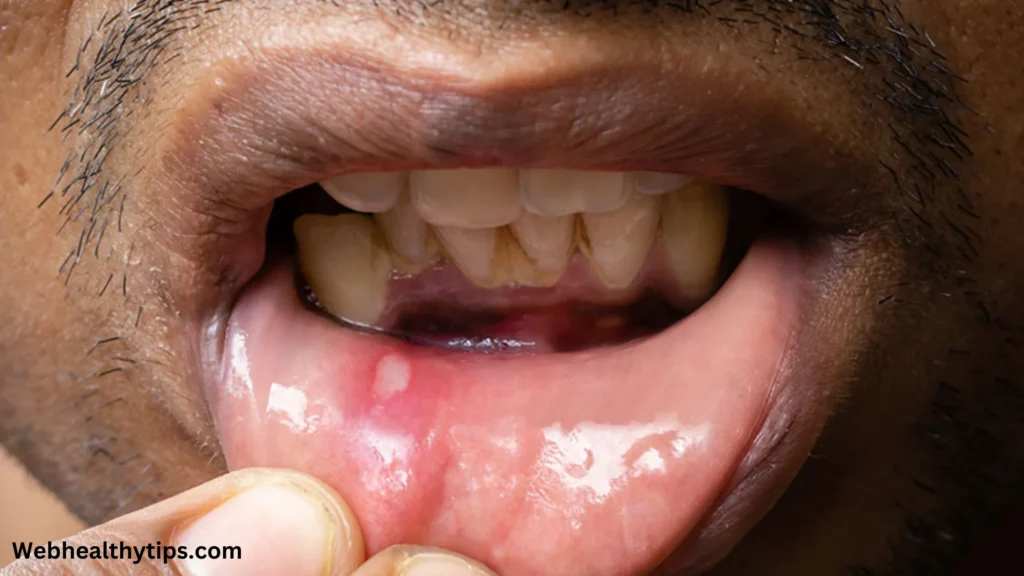
- oral sores that are round or oval in shape and frequently have a white or yellowish core.
- discomfort during conversing, eating, or drinking.
- irritation and redness around the area.
- overall discomfort, particularly during eating.
Oral cancer: What Is It?
The development of cancerous cells in any area of the mouth, such as the lips, tongue, cheeks, gums, or throat, is referred to as oral cancer. In contrast to ulcers, mouth cancer has the potential to be fatal if it is not detected and treated promptly.
Oral cancer causes:
- Use of Tobacco: Two of the main causes of oral cancer are smoking and chewing tobacco.
- Alcohol Consumption: Drinking too much alcohol raises your chance of getting oral cancer.
- Human Papillomavirus (HPV): Cancers of the mouth and throat can result from this sexually transmitted illness.
- Sun Exposure: Long-term, unprotected sun exposure can result in lip cancer.
- Genetic Factors: Oral cancer risk may be raised by a family history of the disease.
signs of mouth cancer
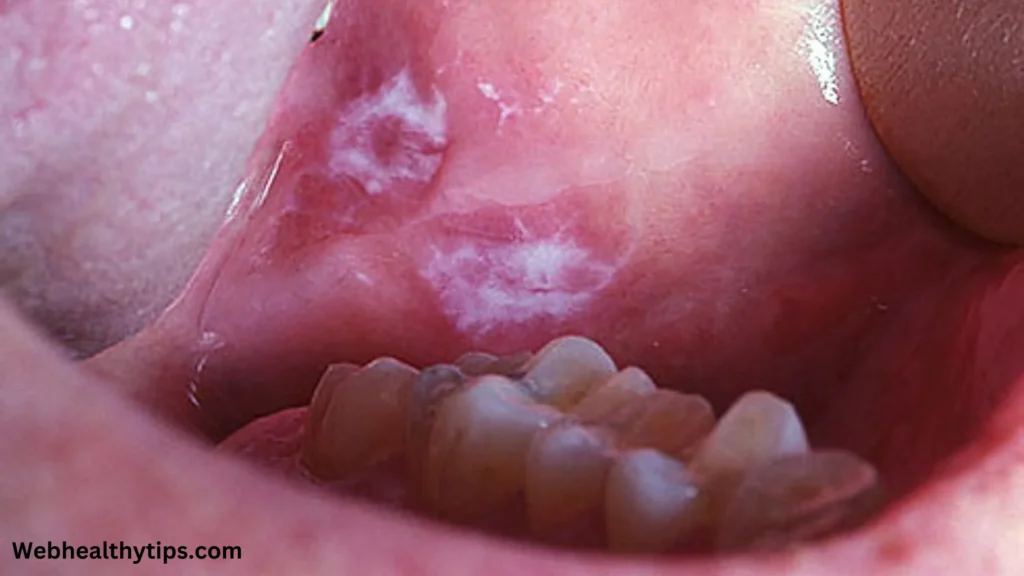
- persistent sores that take longer than three weeks to cure.
- Mouth pain or discomfort that does not go away.
- thickening or lumps in the oral mucosa.
- Red or white spots on the lips or inside the mouth.
- Feeling like something is trapped in your throat or having trouble swallowing.
- unaccounted-for weight loss.
- tingling in the neck, face, or mouth.
Important Distinctions Between Oral Cancer and Mouth Ulcers:
| Feature | Mouth Ulcers | Oral Cancer |
|---|---|---|
| Healing Time | Heals within 1-2 weeks | Persistent, doesn’t heal over weeks |
| Pain | Painful but not life-threatening | May or may not be painful |
| Appearance | Small, round/oval, white or yellowish | Larger, irregular shape, lumps, patches |
| Cause | Injury, infection, stress, deficiency | Tobacco, alcohol, HPV, genetic factors |
| Risk | Low | High risk of spread and complications |
How to Guard Against Mouth Ulcers
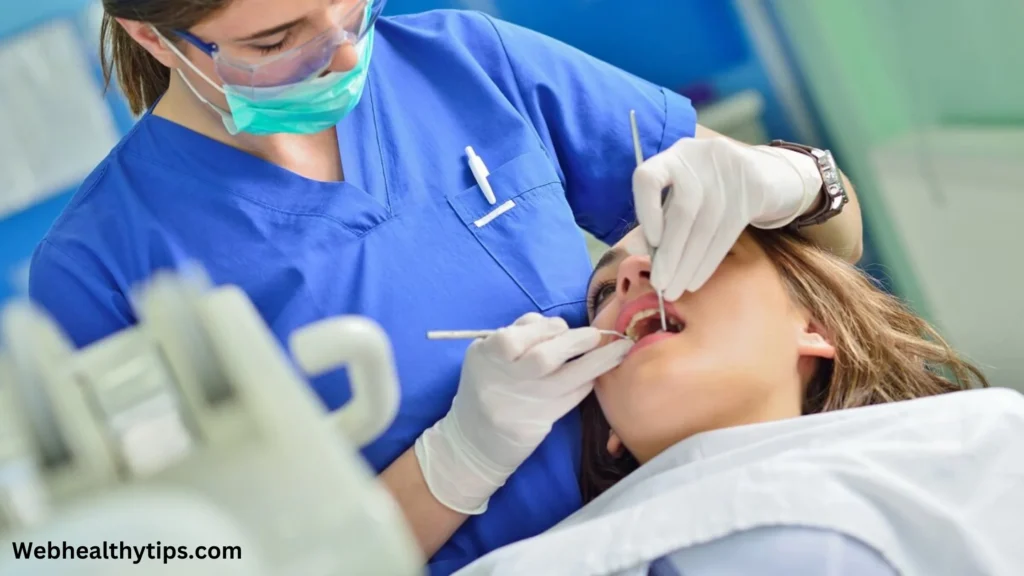
Even though they are frequently benign, mouth ulcers can cause excruciating pain. This is how to stop them:
Sustain Proper Dental Hygiene
Frequent brushing and flossing contributes to the reduction of bacteria that can lead to sores and illnesses. To prevent damage to your gums and the inside lining of your mouth, use a toothbrush with soft bristles.
Consume a Well-Rounded Diet
Make sure that a lot of vitamins and minerals, especially vitamin B12, folic acid, iron, and zinc, are in your diet. Ulcers may result from deficiencies in several nutrients. Your diet will benefit from including more fruits, vegetables, and whole grains to promote dental health.
Stay Away from Trigger Foods
Find the foods that give you mouth ulcers and stay away from them. These could include chocolates, citrus fruits, and foods that are hot or acidic. Ulcers can also result from sensitivity to dairy or gluten in certain people.
Control Your Stress
Ulcers may arise as a result of prolonged stress. Incorporating stress-relieving activities into your daily routine, such as yoga, meditation, or deep breathing techniques, can reduce your risk of acquiring ulcers caused by stress.
Maintain Hydration
Water consumption keeps the mouth from drying out, which can cause ulcers, and promotes general health.
Apply mouthwashes
Mouthwashes with antiseptic qualities can aid in preventing infections and the growth of microorganisms. Saltwater rinses are another useful tool for pain relief and quick recovery.
Ways to Treat Oral Cancer
Treatment outcomes for oral cancer can be greatly impacted by early identification. This is how you handle it:
Frequent dental examinations
It’s critical to see your dentist on a frequent basis since they can identify early indications of oral cancer. Most dentists perform oral cancer screenings in addition to standard dental checkups, during which they look for lumps, ulcers, or unusual tissue changes.
Stay away from alcohol and tobacco.
Giving up smoking and binge drinking can significantly lower your risk of acquiring oral cancer because they are important risk factors. If you find it difficult to stop, you might want to think about getting help from a medical expert.
Guard Your Lips
Use SPF-containing lip balm if you spend a lot of time outside to shield your lips from UV rays, which can cause lip cancer.
immunization
Vaccinations against HPV are available and advised, particularly for youth, in order to lower the risk of oral cancer caused by HPV.
Get Medical Help Right Away
See a doctor if you observe a sore, lump, or discolored region in your mouth that doesn’t get better in two weeks. It might require a biopsy to find out if it’s malignant.
Options for Treating Oral Cancer

Depending on the cancer’s stage, treatment for oral cancer usually consists of surgery, radiation therapy, and chemotherapy:
- Surgery: entails removing tissue that has developed cancer.
- High-energy beams are used in radiation therapy to destroy cancer cells.
- Chemotherapy: Uses medications to either kill cancer cells or stop them from proliferating.
Healing and Rehabilitative Care
Patients may require following surgery, dietary support, speech therapy, or physical therapy. Regular examinations are necessary to monitor the healing process and detect any recurrence of malignancy.
In summary
While mouth ulcers are typically benign and recover rapidly, oral cancer is a dangerous illness that has to be treated right away. You can take the necessary preventive action if you are aware of the distinctions between the two. Ulcers can be avoided by practicing proper dental hygiene, eating a balanced diet, and leading a healthy lifestyle. On the other hand, the risk of oral cancer can be considerably reduced by getting frequent screenings, abstaining from alcohol and tobacco, and covering your lips.Consult a physician immediately if you continue to have any symptoms.


